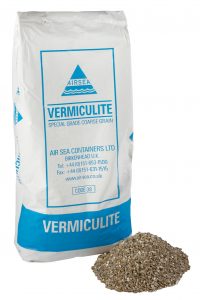Jul . 12, 2024 11:53 Back to list
Top material choices for thermal insulation in manufacturing facilities
Thermal insulation is a critical aspect of building construction, as it helps maintain a comfortable indoor temperature and reduces energy costs. Selecting the best material for thermal insulation in a factory is important for ensuring optimal performance and long-term efficiency.
One of the most popular materials for thermal insulation in factories is foam board insulation. Foam boards are lightweight, easy to install, and have excellent thermal resistance properties. They are available in various types, including expanded polystyrene (EPS), extruded polystyrene (XPS), and polyisocyanurate. Each type has different characteristics, such as moisture resistance, compressive strength, and fire resistance, making it suitable for different applications in factories.
Another common material used for thermal insulation in factories is fiberglass. Fiberglass insulation is made of fine glass fibers and is available in batts, rolls, and loose fill. It is a cost-effective option that offers good thermal performance and sound insulation. Fiberglass insulation is non-combustible and resistant to mold and mildew, making it a popular choice for factories where fire safety and indoor air quality are important.
Mineral wool is another excellent choice for thermal insulation in factories. Mineral wool insulation is made from natural rock or slag materials and has excellent thermal resistance, sound absorption, and fire resistance properties

best material for thermal insulation factory. It is non-combustible, water-resistant, and does not promote the growth of mold or mildew. Mineral wool insulation is available in batts, rolls, and loose fill, making it versatile and easy to install in factory buildings. Spray foam insulation is a modern and innovative material that is increasingly being used for thermal insulation in factories. Spray foam insulation is made of polyurethane or polyisocyanurate and is applied as a liquid that expands to fill gaps and create a seamless thermal barrier. It offers superior thermal performance, air sealing, and moisture resistance compared to other insulation materials. However, spray foam insulation is more expensive than traditional materials and requires professional installation. In conclusion, there are several materials available for thermal insulation in factories, each with its own advantages and characteristics. The best material for thermal insulation in a factory will depend on factors such as the building design, budget, performance requirements, and local climate. It is essential to consider these factors carefully and choose the most suitable material to ensure optimal thermal performance and energy efficiency in the factory. Consulting with a professional insulation contractor can help in selecting the best material and ensuring proper installation for long-lasting thermal insulation benefits.

best material for thermal insulation factory. It is non-combustible, water-resistant, and does not promote the growth of mold or mildew. Mineral wool insulation is available in batts, rolls, and loose fill, making it versatile and easy to install in factory buildings. Spray foam insulation is a modern and innovative material that is increasingly being used for thermal insulation in factories. Spray foam insulation is made of polyurethane or polyisocyanurate and is applied as a liquid that expands to fill gaps and create a seamless thermal barrier. It offers superior thermal performance, air sealing, and moisture resistance compared to other insulation materials. However, spray foam insulation is more expensive than traditional materials and requires professional installation. In conclusion, there are several materials available for thermal insulation in factories, each with its own advantages and characteristics. The best material for thermal insulation in a factory will depend on factors such as the building design, budget, performance requirements, and local climate. It is essential to consider these factors carefully and choose the most suitable material to ensure optimal thermal performance and energy efficiency in the factory. Consulting with a professional insulation contractor can help in selecting the best material and ensuring proper installation for long-lasting thermal insulation benefits.
Latest news
-
High-Quality Fe-C Alloy Leading Manufacturers & Spherical Alloy Materials Supplier
NewsJun.10,2025
-
Premium Low Nitrogen Recarburiser Supplier & Manufacturer – High Quality Exporters
NewsJun.10,2025
-
DT4 High-Quality Magnetic Materials Leading DT4 Manufacturer & Supplier
NewsJun.10,2025
-
High-Performance Spring Steel Suppliers Custom Solutions
NewsJun.10,2025
-
Premium SWRCH6A Manufacturer Steel Wire Supplier & Factory
NewsJun.10,2025
-
Premium Mild Steel Wire Rod Supplier & Manufacturer
NewsJun.10,2025
